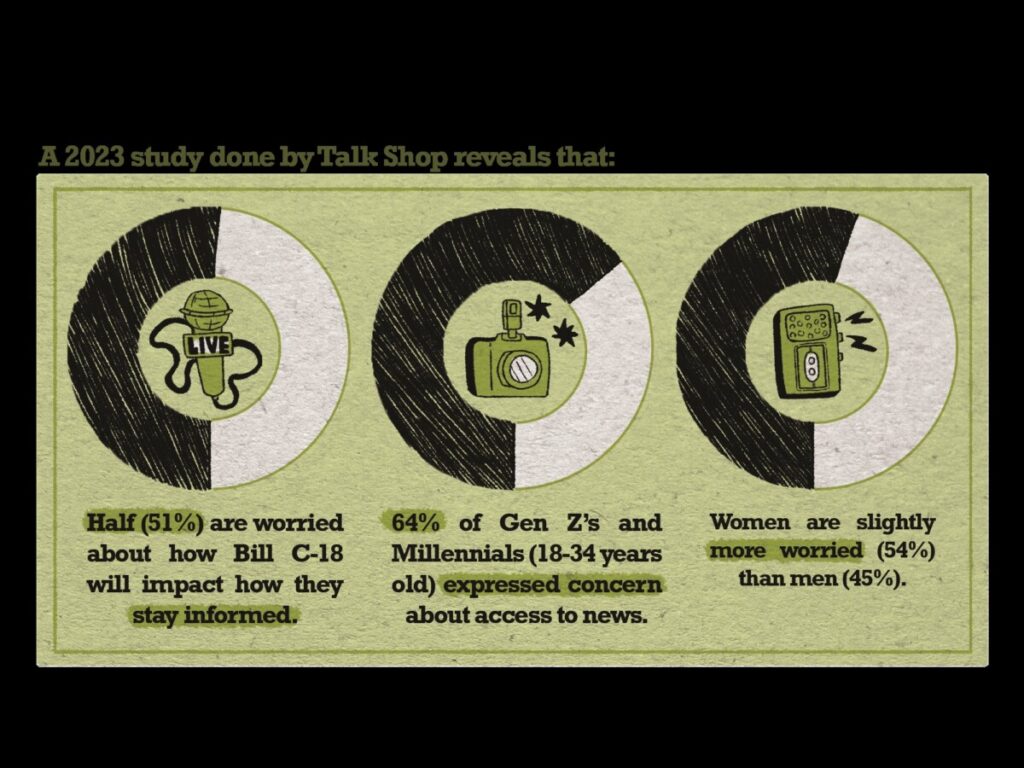What are the impacts of Bill C-18 on social media platforms?
For us to make important financial decisions, we must first be informed. Recent events surrounding Bill C-18, the Online News Act, have ignited a fierce battle between tech giants and Canadian journalists.
This legislation aims to compensate Canadian news outlets for their invaluable content. Tech giants like Meta and Google have chosen to block Canadian news on their platforms in combat—which is the reason why you may have noticed that news content has disappeared from your Instagram feed.
The federal government is throwing their weight behind Bill C-18 and suspending advertizing on Facebook and Instagram altogether. This move is echoed by provincial and municipal governments, including Quebec Premier François Legault. Even big media corporations are taking a stand.
The Online News Act, enacted by the federal government in June, requires tech platforms to negotiate with news organizations for financial remuneration for the news shared on their platforms. This can potentially bring in over $300 million annually for Canadian news organizations.
Unifor, Canada’s largest private sector union, is urging all provincial and municipal governments to follow the federal and Quebec governments in stopping advertizing on Facebook and Instagram in response to Meta’s threat. The Canadian Association of Journalists calls on Meta to reverse its decision, emphasizing the importance of access to accurate and quality information for a flourishing democracy.
Recent data from an August 2023 study conducted by Talk Shop reveals that 51 percent of Canadians are concerned about the impact of Bill C-18. These worries highlight a growing unease about the future of dependable news in the digital era.
Even though Bill C-18 was meant to safeguard journalism against dwindling revenues, it has unintentionally pushed consumers to seek news from unaffected sources like newsletters, podcasts, independent news sites, and even X (formerly Twitter).
The union also calls on corporations responsible for a significant portion of the more than $4 billion in annual revenue that Facebook generates in Canada to support local news and Canadian content by halting all advertising through Meta and its subsidiaries.
The world is closely watching how Canada tackles this issue. As tech giants square off with governments over their responsibilities in the digital era, Canada’s actions will set a precedent for other nations.
The Canadian Radio-television and Telecommunications Commission’s plans to implement the Online News Act are taking shape, promising a potential resolution to the contentious issue. With public consultations, an independent auditor, and a mandatory bargaining process on the horizon, the organization is hoping to establish a fair compensation framework.
Whether through negotiated agreements or regulatory changes, the outcome will shape the future of digital news in Canada.

INFOGRAPHIC BY CARLEEN LONEY/ @SHLONEYS




